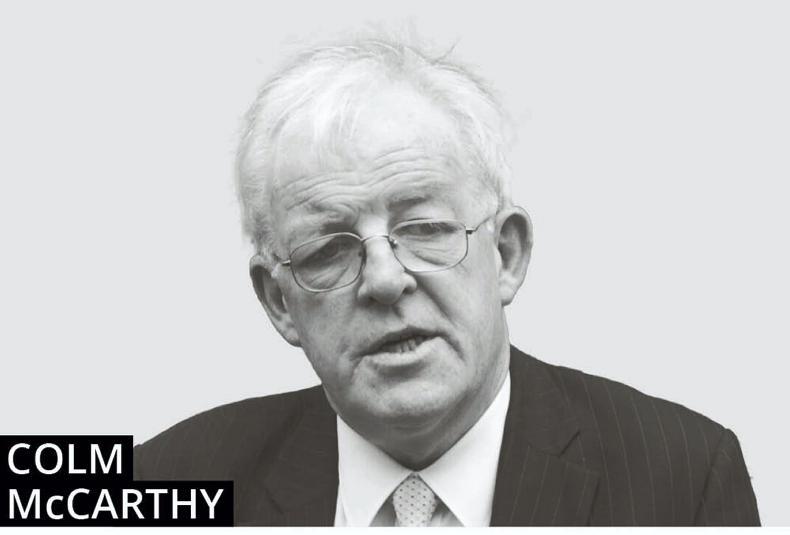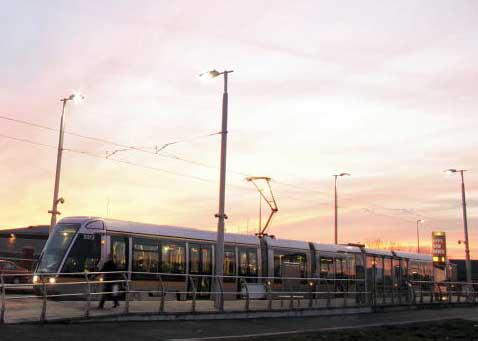A review of the National Development Plan is under way, requiring a reconciliation with the aspirations of the Programme for Government published when the Fianna Fáil/Fine Gael/Green coalition assumed office in June last year.
There must also be a reconciliation in due course with the reality of available resources.
The public’s views have been sought on preferences about the composition of the public capital programme. Regional and sectoral lobby groups will dominate the contributions and all will express disappointment when it transpires, as it must, that not all items on their wishlists make the cut.
One of the questions posed in the invitation to the public is:
"How can the management and governance of public investment be improved?"
Failings
The two principal failings in the Irish public capital programme down the years have been poor project selection and weak project management. Not all projects selected have been poorly chosen in fairness and many well-chosen projects have been competently managed. But there is plentiful evidence that value for money would be enhanced if greater discipline were shown under both headings.
Project management is a specialised business, no place for amateurs and needs to be outsourced from the central civil service. Project selection is more familiar territory for economic analysis and the Irish record has yielded some spectacular failures.
The debacles of the National Children’s Hospital and the National Broadband Plan are merely the most recent examples.
Dodgy project selection can be ruinously expensive where major projects are involved – the two examples cited may yet incur excess costs running into billions.
The principal failing has been the involvement of politicians in project selection and the delegation of project evaluation to the people promoting the project. The National Children’s Hospital illustrated both failings in spades – the location decision and the project design were politicised and project oversight entrusted to overlapping committees of medics and civil servants.
Every project needs a project champion, some organisation charged with developing the project concept and articulating the business case. Since not all projects can find their way on to the priority list of what can be afforded, project champions should sometimes fail.
The poorest projects should be rejected early, ideally without major expenditure incurred on design and feasibility studies.
Every project needs a project champion, some organisation charged with developing the project concept and articulating the business case
In Ireland, the routine procedure has been to entrust the evaluation of projects to the project promoters, usually Government departments or State agencies. They engage consultants to produce what are described as "cost-benefit studies", often the handiwork of unqualified people (accountants or engineers) unfamiliar with microeconomics.
Cost-benefit studies are difficult to do properly and are never done properly where the client is the project promoter. There are successful consulting firms, operating for decades in Ireland, which have never delivered a negative verdict in these circumstances.
Cost-benefit is a useful technique for allocating scarce funds between competing priorities. The abuse of the technique as practised in the Irish public capital programme has turned it into a branch of the public relations industry.
Studies commissioned by the project promoters invariably deliver encouraging results.
No consultancy firm, keen for repeat business, is incentivised to report that the project is a poor one and there have been some entertaining examples. A personal favourite is the 1999 report, signed off by a long and impressive list of Dublin consulting firms, which gave the thumbs-up to the fantasy Bertie Bowl proposal in west Dublin.
Cost-benefit is a useful technique for allocating scarce funds between competing priorities
The project was eventually stopped through the withdrawal of political support by Taoiseach Bertie Ahern’s coalition partners, but it is salutary to recall that the taxpayers dodged a €1bn bullet. Regardless, the firms which signed off on the report appear to enjoy continued patronage for their project evaluation skills.
Over the decade following the financial crisis, the Department of Finance and the Department of Public Expenditure recruited additional technical staff competent in project appraisal.
These people have the expertise and experience to do cost-benefit studies properly and are independent of the project champions.
Governance
It is high time the consultancy gravy train was diverted into a siding. The best way to do this would be through a new Public Investment Act which would institute proper governance for the capital programme. This would simply ban the conduct of project appraisals by the project champions or by consultants they employ.
All projects would be denied, by statute, consideration by cabinet until an independent appraisal by competent and uncompromised experts had been completed, published and scrutinised by the appropriate Dáil committee.
It would of course be open to ministers to go against the advice of the independent appraisal, as they chose to do in the case of the broadband plan, when the Department of Public Expenditure publicly exposed the inadequacies of the study prepared by consultants to the project champions. But at least the public got to observe the proceedings.










SHARING OPTIONS